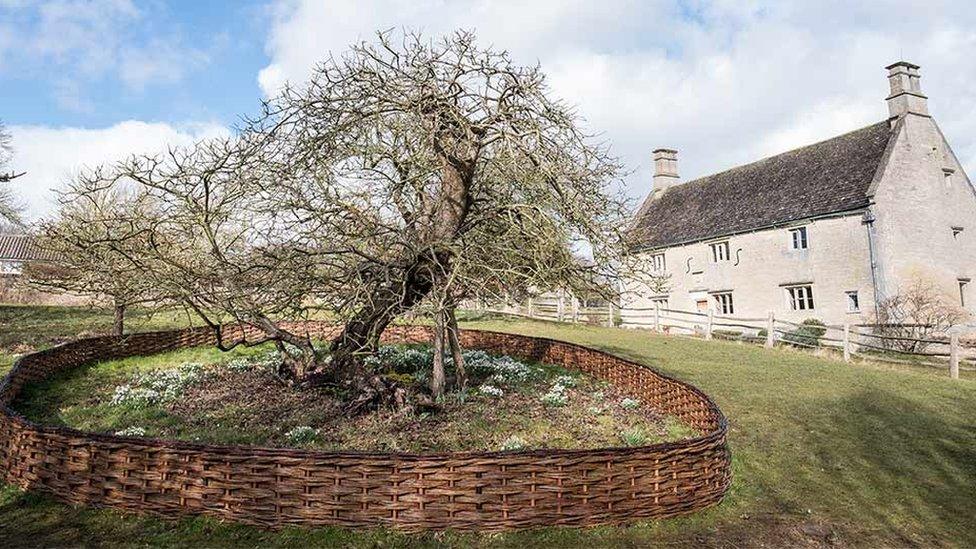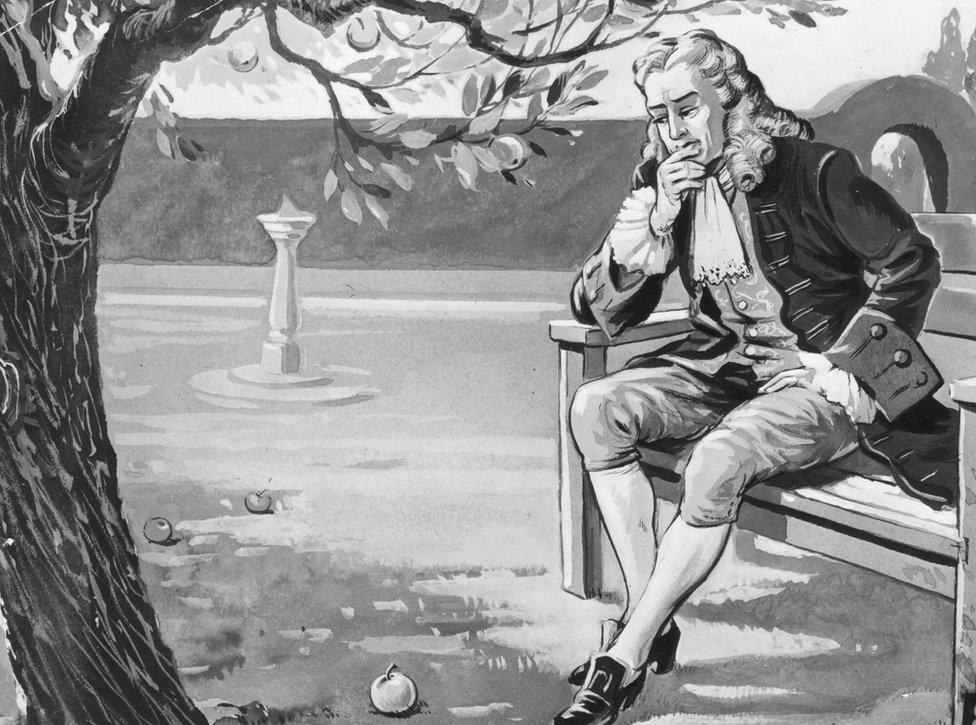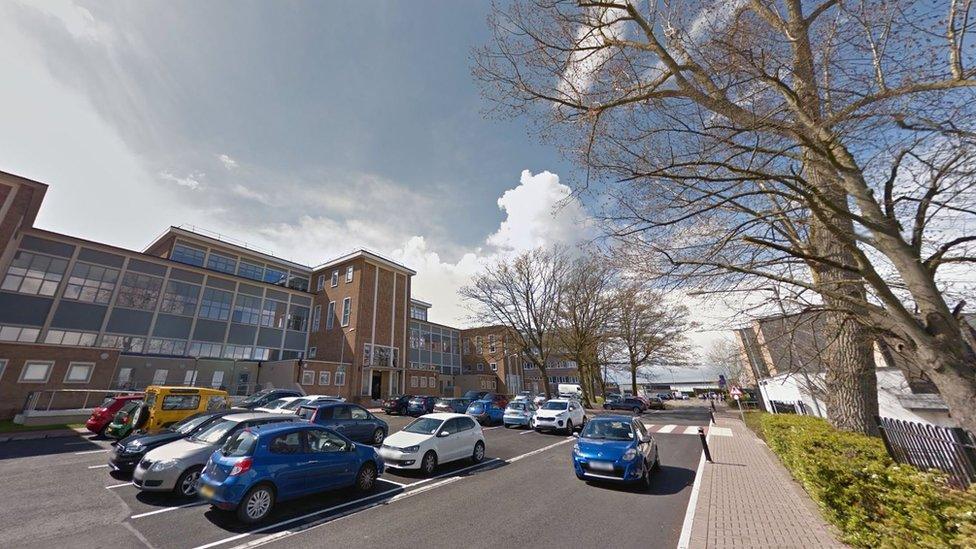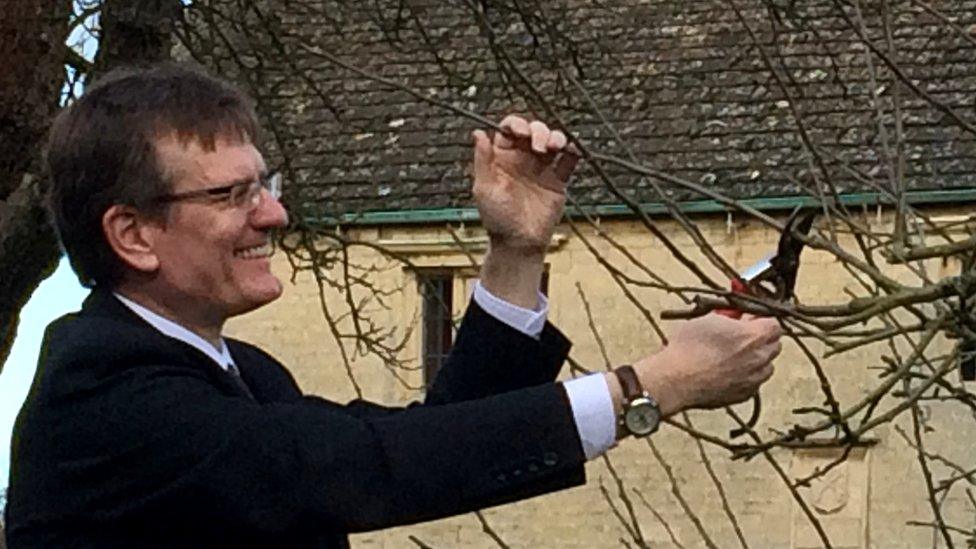Sir Isaac Newton tree 'clones' to inspire Loughborough students
- Published

Five cuttings have been gifted to the nearest university to the scientist's home.
Sir Isaac Newton's apple tree is set to be "cloned" in a bid to inspire students to think like the pioneering scientist.
An apple falling at Newton's childhood home in 1666 is believed to have led to his discovering gravity.
Woolsthorpe Manor in Lincolnshire has gifted five cuttings to its nearest university, Loughborough.
Cuttings have been planted around the world, including at Cambridge University, Washington DC and China.

In 1665, Cambridge University was closed because of the Great Plague and Newton returned home to Woolsthorpe, near Grantham, where his studies continued.
Years later he told a story that a falling apple in the orchard had prompted him to think about gravity, eventually published in his 1687 tome Principia.
The story that the falling fruit had hit him on the head is believed to be a later embellishment.
A 350-year-old Flower of Kent apple tree at the National Trust property is thought to be the very same plant.
Cuttings were taken earlier this month by Loughborough University academics, who will now attach them to underground stems called rootstocks.

You may also like:

It is hoped they will join together permanently and grow as a single organism, creating "clones" of Newton's tree.
After two years, they will be ready to plant around the campus.

One of the Newton tree "clones" will be planted at the Schofield Building at Loughborough University
"Having one outside the science building it's hoped will inspire students to think in the way Sir Isaac Newton thought," said Roger Smith. professor of mathematical engineering.
As well as cuttings planted at universities in Cambridge, York, the USA and China, seeds from the apple tree were even flown to the International Space Station with Tim Peake.
They were brought back to Earth and are now growing at Kew Gardens.
- Published1 March 2016

- Published19 December 2015

- Published14 May 2011